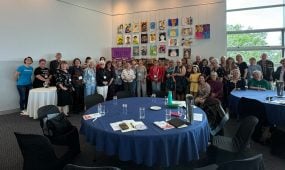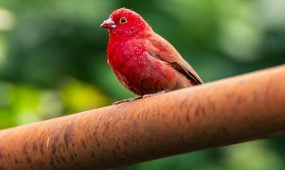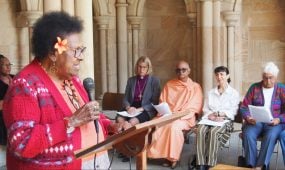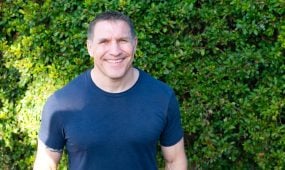Design Led Venture: St Paul’s School students' insights
Reflections
Hear four brilliant St Paul’s School students share about their 2021 Design Led Venture experience, as they worked alongside large organisations to help solve real-world problems
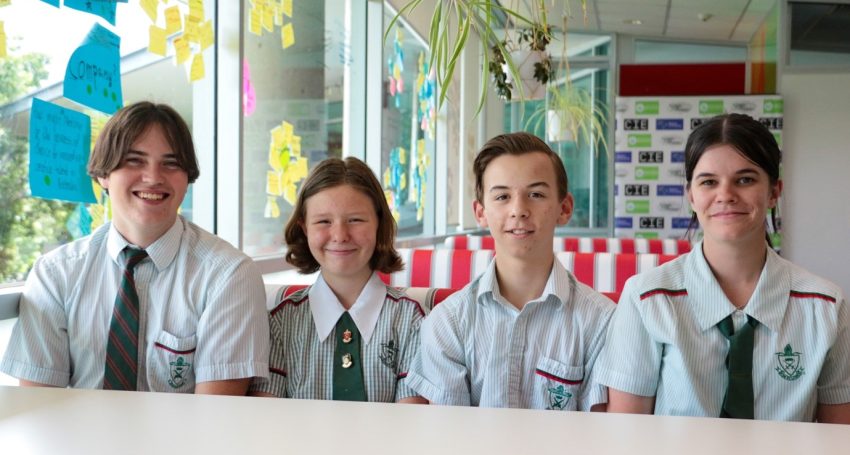
St Paul’s School recently completed a project called a Design Led Venture (DLV). A DLV sees a group of ten Year 6-11 students who work closely with a business or a community group to understand and develop solutions to real-life issues. Over the 10-week project, students use design thinking to create, deliver then pitch a solution to a business, which will then implement it.
This year, the two businesses St Paul’s worked with were the University of the Sunshine Coast (USC) and Medline Australia.
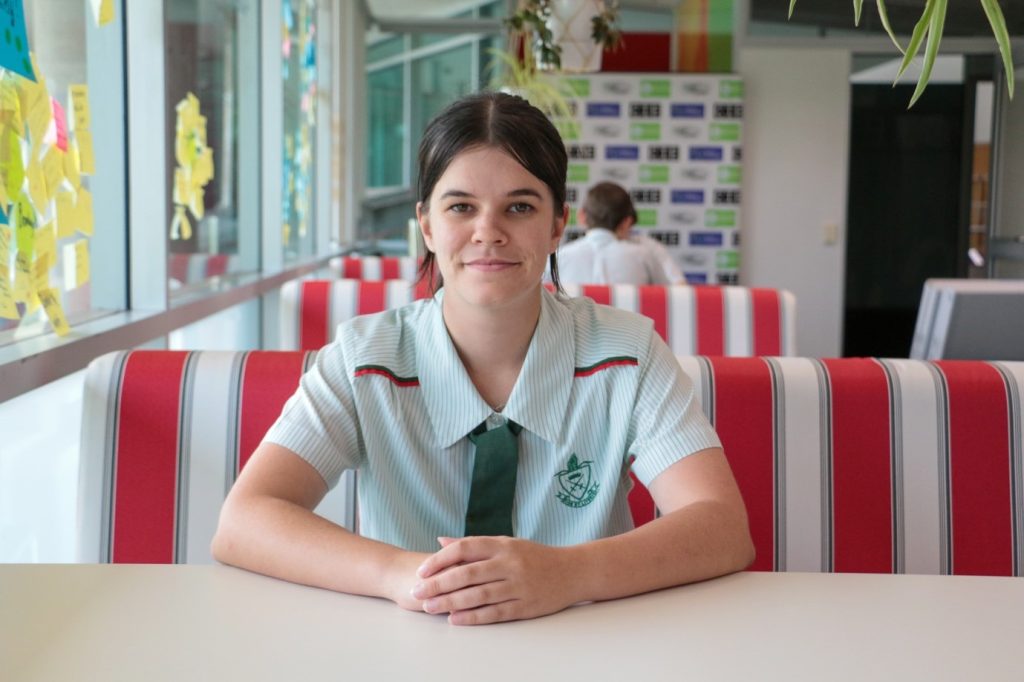
“Presenting in front of a crowd was very nerve racking for most of us, but it was a lot of fun and the environment before the presentation was very supportive and calm. The experience has certainly allowed me to overcome my public speaking fear” (Claire West, St Paul’s School student)
Claire West – Year 11 student, St Paul’s School, USC Moreton Bay team
As part of a group collaborating with 10 other students we worked with the University of Sunshine Coast (USC) Moreton Bay Campus to develop a new marketing strategy. The Design Led Venture process had us exploring each part of the university, examining their strengths, areas for growth and identified areas that could use improvement. By following this process, we were able to develop a solution to an issue we identified. Our proposed solution was the ‘See it to Believe it’ campaign. This included a laid-out and walk-through advertisement / short video that would be marketed to the target audience and allow USC to grow their brand and reputation.
Advertisement
The highlight in the process for me was the final presentation to our client and a full audience. On the final pitch night, the whole group got together to plan our report findings to our stakeholder – the University of Sunshine Coast. Presenting in front of a crowd was very nerve racking for most of us, but it was a lot of fun and the environment before the presentation was very supportive and calm. The experience has certainly allowed me to overcome my public speaking fear.
The most interesting thing that I learnt throughout the process was how much I am capable of and how my thought process changed when looking at problems. I grew in many other ways as well, including mentoring younger students and learning new ways to problem solve. My confidence in asking questions and being able to talk to different people and thinking outside the box, whilst collaborating with different age groups also improved.
I will continue to bring what I have learnt throughout the DLV process to my schoolwork and future career. I will do this by being more confident in the classroom and asking more questions. And, I will use my new collaboration skills with others in group work. I will also bring these skills to my future career by speaking up and sharing my thoughts to the groups and teams I’m a part of.
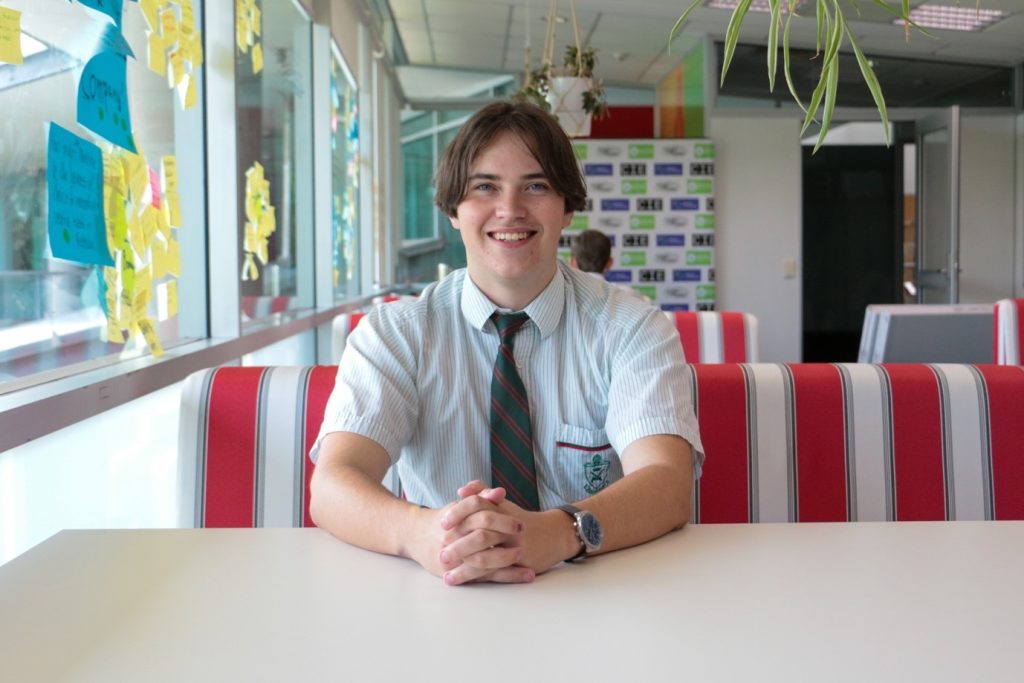
“After doing this programme for two years, I’ve come across many types of people and I have learnt that every single person has a place and a role, and that everyone should be included” (Elliot Waigh, St Paul’s School student)
Elliot Waigh – Year 11 student, St Paul’s School, USC Moreton Bay team
Working at the University of the Sunshine Coast (USC) Moreton Bay Campus, the team members were able to talk to a wide selection of people with a genuine interest in the success of USC, including students, staff and community members. This allowed us to identify that our opportunity was to distinguish USC Moreton Bay as the best place to learn for everyone. We decided that the best way to do this is through a video marketing campaign.
Advertisement
Undergoing my second Design Led Venture (DLV), it was clear that the 3.0 programme would be an entirely different experience to 2.0. Along with Claire, being the oldest empowered me to take on a significantly different role. The ‘near mentor’ role allowed the creativity and innovation of younger students to be nurtured in a way that Dr. Renae Jones did for me in the 2.0 programme and in my personal business ventures.
The overall highlight was helping Charlie in Year 8 prepare his pitch because the ability to nurture and inspire others, as I have been inspired, was probably one of the most enriching experiences of my life.
The single most interesting thing that I learnt was the fact that intelligence is not the key to success, nor is natural ability. Although the ability to think fast or solve every problem are helpful, the ability to collaborate and understand the process is a skill I’d much rather master. After doing this programme for two years, I’ve come across many types of people and I have learnt that every single person has a place and a role, and that everyone should be included.
With this newfound realisation, it is clear that my future, and that of many of my peers, will be orientated on their ability to alter or create new ideas to fit the ever-changing world we live in. Knowing everyone’s importance and ability and the art and ability of bringing people together in a way that works will give me a massive competitive edge when joining the workforce.
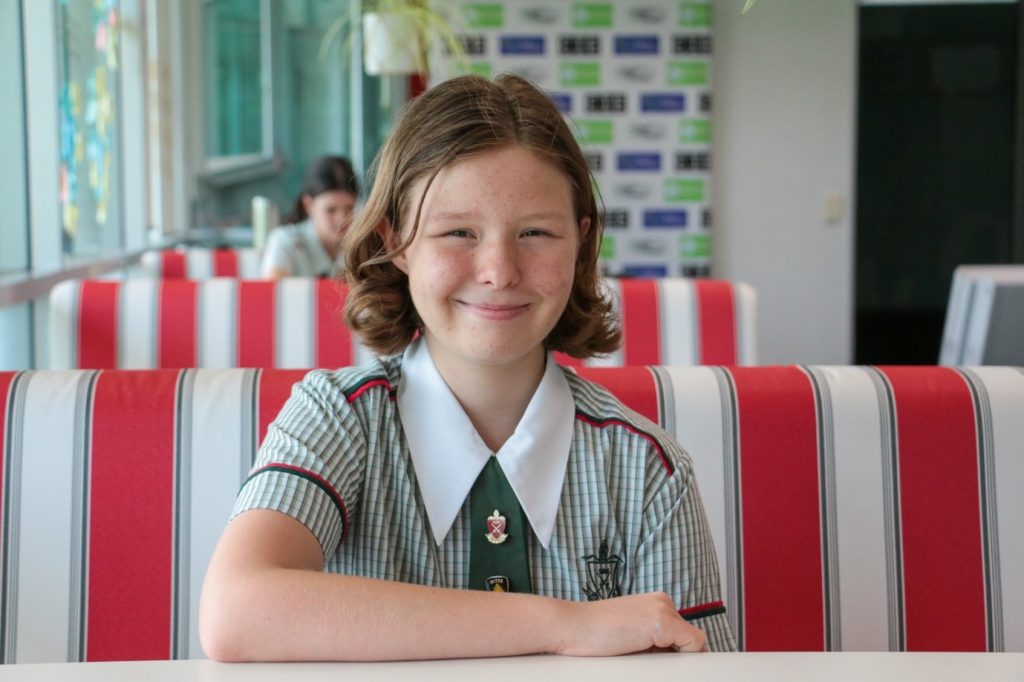
“Now that I know just what kind of waste can and cannot be recycled, I have since tried my best to recycle as much as possible and I will continue to do so” (Natasha Brandt, St Paul’s School student)
Natasha Brandt – Year 7 student, St Paul’s School, Medline Australia team
Our team worked with a medical supplies company called Medline. Our solution was called ‘Sip, Swap, Drop’, to solve their sustainability and recognition problems. The idea of this was that you can walk into a café and buy a coffee or whatever else you want to get and then you can swap your old used masks for a brand new one and it will only cost 20 cents.
The biggest highlight of DLV for me was when we visited the Medline office in Brisbane. The employees told us that they had thousands of products in that warehouse alone. I thought that it was incredible that they were able to hold that many products in just one warehouse.
The most interesting thing that I have learnt during this DLV process is although it may be very good to recycle as much as possible and help the environment, sometimes that is not always an option, especially when working with items that have been used in hospitals or other medical facilities. Many supplies and equipment items that are used in hospitals cannot be re-used and for a very good reason. To re-use and re-cycle things that have been used in surgery, for example, would risk spreading diseases and infections.
Now that I know just what kind of waste can and cannot be recycled, I have since tried my best to recycle as much as possible and I will continue to do so.
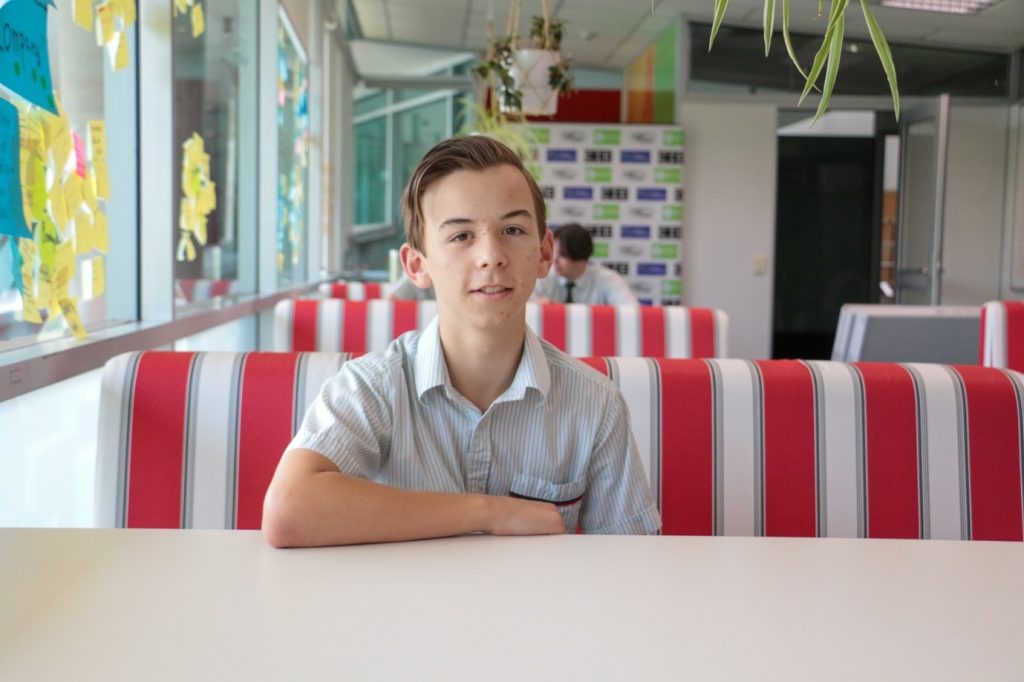
“Yet we, as teenagers who are yet to graduate high school, view things from a unique perspective, and express different opinions and initiate ideas to help prepare the world for our future” (Coby Watson, St Paul’s School student)
Coby Watson – Year 8 student, St Paul’s School, Medline Australia team
As a part of the Design Led Ventures team, I worked alongside Medline. Medline is a leading supplier of medical and surgical healthcare products and was founded in 1910. The Medline Team created a programme called ‘Sip, Swap, Drop’ in which we had planned to partner with TerraCycle to utilise their mask recycling boxes after many hours of goal, team and idea development.
The first moment when I walked into the CIE (where we part take in DLV), I heard Mr Osborne say “expect the unexpected” and he continually reminded us that “these companies have reached out to us because we have a different perspective than the professionals.”
The DLVs only ever taught me one key thing, but I would recommend it to anyone. The DLV programme is about setting yourself up to teach and learn by yourself. The staff and teachers are alongside you to push you and add input. The DLV teaches us to think of the unthinkable, remembering that the multi-billion-dollar companies that we are solving problems for have reached out to other professionals and adults who often have degrees and authority to make decisions. Yet we, as teenagers who are yet to graduate high school, view things from a unique perspective, and express different opinions and initiate ideas to help prepare the world for our future.
I will bring this knowledge everywhere I go. Whether that is at school or in a future career position. I will always know how to expect the unexpected and continue learning forever. This way of thinking will allow me to stand out and create trends to, hopefully, impact change.

